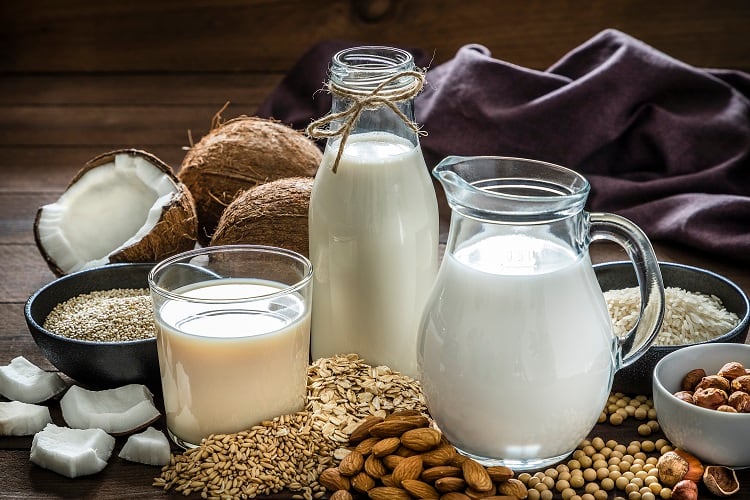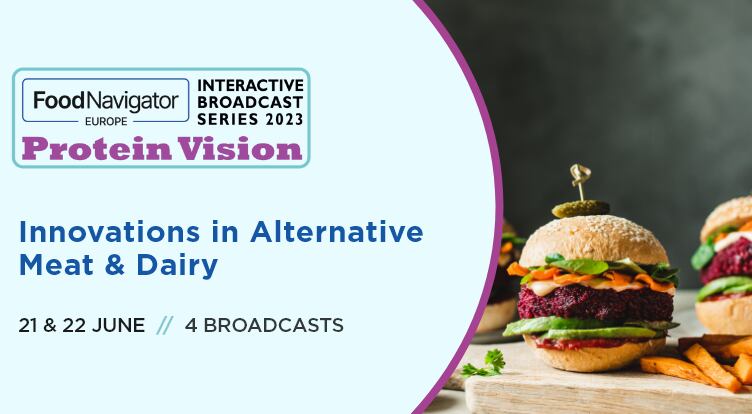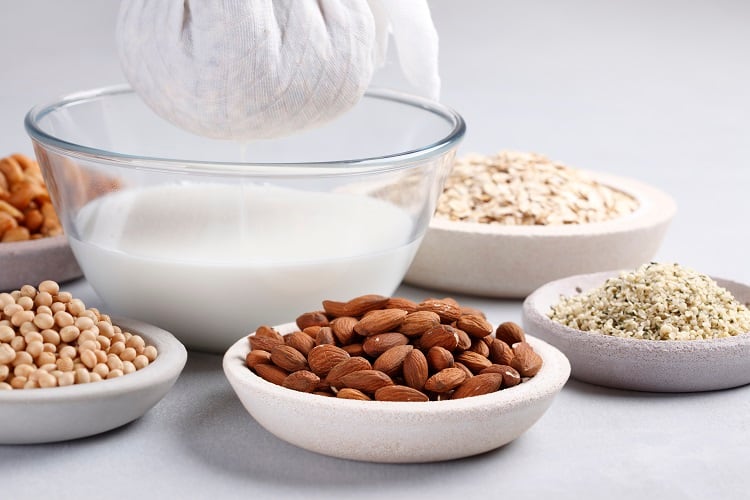Ever since soya milk first appeared commercially in 1910, created by Chinese biologist Li Yu-Ying, plant-based milk provided a key alternative for those who wished to reject animal milk.
But plant-based milk has a more complex role than its brethren in the meat alternative world. Unlike plant-based meat, which acts primarily as a substitute for people choosing not to eat meat for health, environmental, ethical, or religious reasons, plant-based milk has another prominent purpose – to provide milk to people with lactose intolerance, which affects a significant percentage of the world’s population. How important is this factor?
The available market is not small. Lactose intolerance is widespread. In China, for example, which until recently had the world’s biggest population, 85% of people are lactose intolerant. Some countries, such as Ghana, Malawi, Yemen and South Korea, have a lactose intolerance rate of 100%. It’s even high in some European countries, such as Italy (72%) and Ukraine (61%).
However, the dairy industry is also a key emitter of greenhouse gasses. In fact, emissions stemming from dairy make up 3.4% of total global emissions – nearly double that of aviation, which arguably gets far more coverage in the news cycle.
Then there are the ethical reasons. Many vegans object to the cruel treatment dairy cows experience, which includes being kept, artificially, in a state where they can produce large volumes of milk, which leaves them exhausted and in pain.
Finally, there are health concerns. While most plant-based milks have a lower protein and iodine content than dairy milk, they are also lower in saturated fat, which is often linked to health complications.
It is important for the plant-based milk industry to know who they are targeting, and why people are making the decision to eschew dairy from animals in favour of plant-based milk.
In pursuit of health
The main reason that people choose to switch to plant-based milk is, in fact, for health. According to data from the Voice of the Consumer: Health and Nutrition Survey (2023), a survey by market research company Euromonitor International, over 30% of people questioned on why they drink plant-based milk said that their main reason was ‘to feel healthier.’
The “main reason is perception of these products as healthy,” Maria Mascaraque, Food and Nutrition Global Expert at Euromonitor International, told FoodNavigator. “According to Euromonitor’s survey. . . 1 in 3 (33.4%) global consumers consume plant-based dairy alternatives “to feel healthier”.

Conversely, less than 10% of people gave the reason for choosing them as ‘I am allergic/intolerant to dairy’. However, 19.4% of people said that they prefer plant-based milks because they digest them better. Mascaraque suggested that there may be some overlap in the two categories.
“Regarding lactose intolerance, I think we need to differentiate between the people who actually have an intolerance and the ones that think lactose is bad for them or feel they don’t digest it well,” she said.
“We don’t have a lactose specific answer in the survey for the plant-based dairy question below but the two responses that connect best with this topic is the ‘digestion’ one which ranks high across markets and the one on ‘to reduce sugar intake’ as lactose is sugar after all.” The category ‘to reduce sugar intake’ got 13.8%.
Overall, lactose intolerance among those asked was not as high as worldwide statistics suggest. “When we ask a more general question to consumers on their dietary restrictions,” Mascaraque told us, “just 8.6% of global consumers say, ‘I am lactose intolerant’ and that goes down to 6.5% in Europe, so the factor here is not the actual intolerance as you can see these numbers are relatively small.
“The driver in this context is more connected to the bad rap of lactose and consumers feeling that they digest better the plant-based alternatives.”
The world and all who live on it
A rapidly heating climate and the link between climate change and animal agriculture is another significant motive for consumers of plant-based milks. But this motive is not the dominant one.
“The reason around the environment ranks a lot lower than health reasons for this category,” Mascaraque told us.
“Answers such as ‘to reduce my impact of the environment’ or ‘to reduce my impact on animal welfare’ are chosen by 12.8% and 12.3% of global consumers, respectively. So ethical and environmental reasons are far behind health.
“In Europe, the main response to the question in the chart is again ‘to feel healthier’ (26.6%), second is ‘I digest them better’ (18.3%) and ‘to reduce sugar intake’ is 6th (13.8%) after the ethical and environmental responses.”
In some places, though, animal welfare ranks highly. “There are nuances by market and in countries such as the UK and Germany for example animal welfare is the second largest response, and a lot closer in response rate to health reasons than in the global picture or for Europe.”
Keen to learn more about innovations in alternative meat and dairy? Tune in to our free-to-attend broadcast event Protein Vision, which will stream across four sessions on 21-22 June 2023.
Streaming across four sessions on 21-22 June 2023, Protein Vision will profile the technology, ingredients and culinary science powering the next generation of meat- and dairy-free innovation. We’ll be asking how the sector can rebuild momentum and truly take a bit out of conventional meat and dairy sales.
REGISTER FOR FREE HERE or check out the last PROGRAMME and SPEAKER UPDATES HERE.



